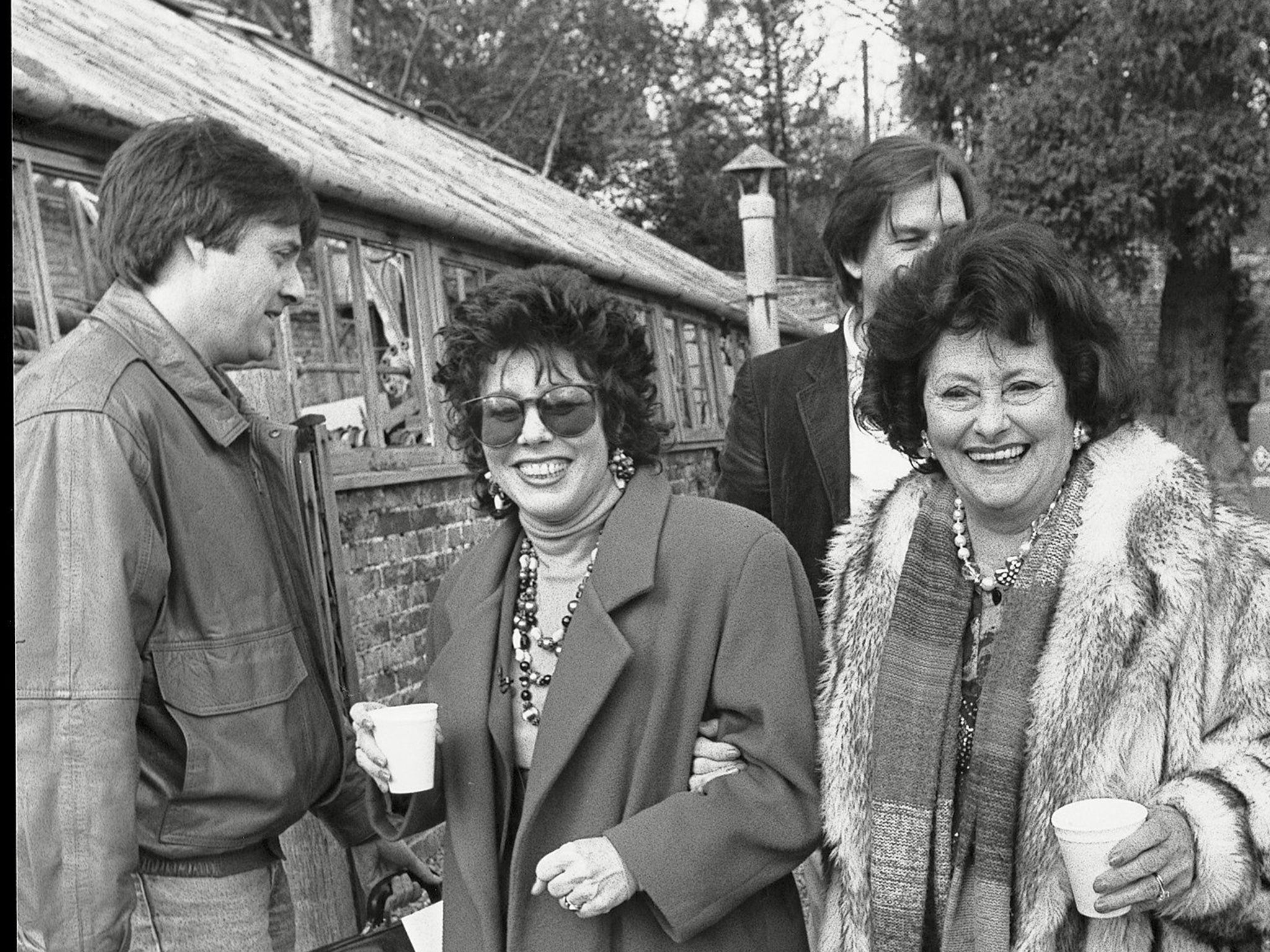The Dowager Lady Killearn: Diplomat’s wife who looked after Churchill in Cairo before becoming a fixture of London’s social scene
Anyone from designers and gamblers to hard-up dukes and duchesses might attend her parties

Your support helps us to tell the story
From reproductive rights to climate change to Big Tech, The Independent is on the ground when the story is developing. Whether it's investigating the financials of Elon Musk's pro-Trump PAC or producing our latest documentary, 'The A Word', which shines a light on the American women fighting for reproductive rights, we know how important it is to parse out the facts from the messaging.
At such a critical moment in US history, we need reporters on the ground. Your donation allows us to keep sending journalists to speak to both sides of the story.
The Independent is trusted by Americans across the entire political spectrum. And unlike many other quality news outlets, we choose not to lock Americans out of our reporting and analysis with paywalls. We believe quality journalism should be available to everyone, paid for by those who can afford it.
Your support makes all the difference.Since 1948, when her husband retired from a senior job in the diplomatic service, and right up until her death at the age of 105, the Dowager Lady Killearn – Jacqui to her many friends – was an indefatigable and seemingly indestructible London socialite of the first order.
She was normally out most nights of every week attending grand dinners, charity balls, debutantes’ dances and the smartest of smart cocktail parties. She was also frequently seen “On Duty” at lunch times during the week, attending such gatherings as the Foyles Literary Luncheon, where I first met her, or frequent luncheons hosted by the Lord Mayor at the Mansion House to honour a City livery company or a City charity.
Her crowded birthday parties, held every year at her house in Harley Street on 13 January, were famous for the diverse range of people you could meet there: dress designers, professional gamblers, hard-up dukes, down-at-heel duchesses, diplomats, politicians, journalists, a Burmese Prince, street artists and interesting and amusing celebrities drawn from the worlds of the cinema, television and the theatre. What I used to like best, apart from the copious amounts of champagne and hot food on offer, were the jolly singsongs we used to have around the piano after her ceremonial cutting of her birthday cake.
Jacqueline Castellani was born in Ceylon in 1910, the daughter of an Italian doctor, the Professor Marchese Aldo Castellani, a pathologist and bacteriologist who built up a thriving practice in Harley Street – he was also an expert on sleeping sickness and was a professor of tropical medicine. Her mother, Josephine, came from a family of Yorkshire cloth merchants. Aldo left his Harley Street house to Jacqui, though for many years she continued to live at her home in Montpellier Square in Knightsbridge, before finally moving into a large set of rooms on the ground floor of the Harley Street house.
In 1934 she married Sir Miles Wedderburn Lampson, Britain’s High Commissioner to Egypt and the Sudan from 1934-1936, then Ambassador to Egypt and High Commissioner to Sudan until 1946. They got to know the young King Farouk of Egypt well but took a strong dislike to him, thinking that he would turn out to be an unsatisfactory king who would probably end his life in exile. They were right.
The couple entertained a lot in Cairo, and Winston Churchill greatly enjoyed his week’s stay with them on a successful visit to the Middle East in 1942. Other guests included General de Gaulle, Anthony Eden, and Generals Alexander, Montgomery, Smuts, Spears, Auchinleck and Wavell, as well as Noël Coward –who treated the Lampsons to a performance of “Don’t Let’s be Beastly to the Germans” – Freya Stark, Cecil Beaton and Evelyn Waugh.
Sir Henry Cannon MP –“Chips” Channon – was a friend of theirs, and he records fondly in his diaries some of the memorable times he had in Egypt as their guest. Lampson was raised to the peerage as Lord Killearn, and from 1946, until his retirement from the diplomatic service in 1948, he was a Special Commissioner in South East Asia.
Back in England, the couple bought a splendid country house in Sussex, Haremere Hall, not far from Etchingham railway station. She was always on good terms with her neighbours, who included close friends like Lord and Lady Longford. They also began to do much entertaining at their house in Montpellier Square.
Lord Killearn died in Hastings Hospital in 1964, with Jacqui holding his hand at his bedside. She augmented a Foreign Office pension with money earned from opening Haremere Hall to the public and taking in paying guests. It enabled her to be a generous contributor to various charitable causes.
A few years before she died, she became involved in a legal tussle with her son over the sale of Haremere Hall. And before that, her butler had taken her to an industrial tribunal. He won more than £1,000 in damages for alleged mistreatment by her. Despite all this, she was much loved by her many friends. She once said to me that her philosophy could be summed up in three short sentences: “Keep your troubles to yourself. Laugh and the whole world laughs with you. Cry and you cry alone.” It became my philosophy soon after she spoke those words to me.
Jacqueline Aldine Lesley Castellani, socialite: born Ceylon 13 January 1910; married 1934 Sir Miles Lampson, later Lord Killearn (died 1964; two daughters, one son, two stepdaughters, one stepson); died 9 October 2015.
Join our commenting forum
Join thought-provoking conversations, follow other Independent readers and see their replies
Comments